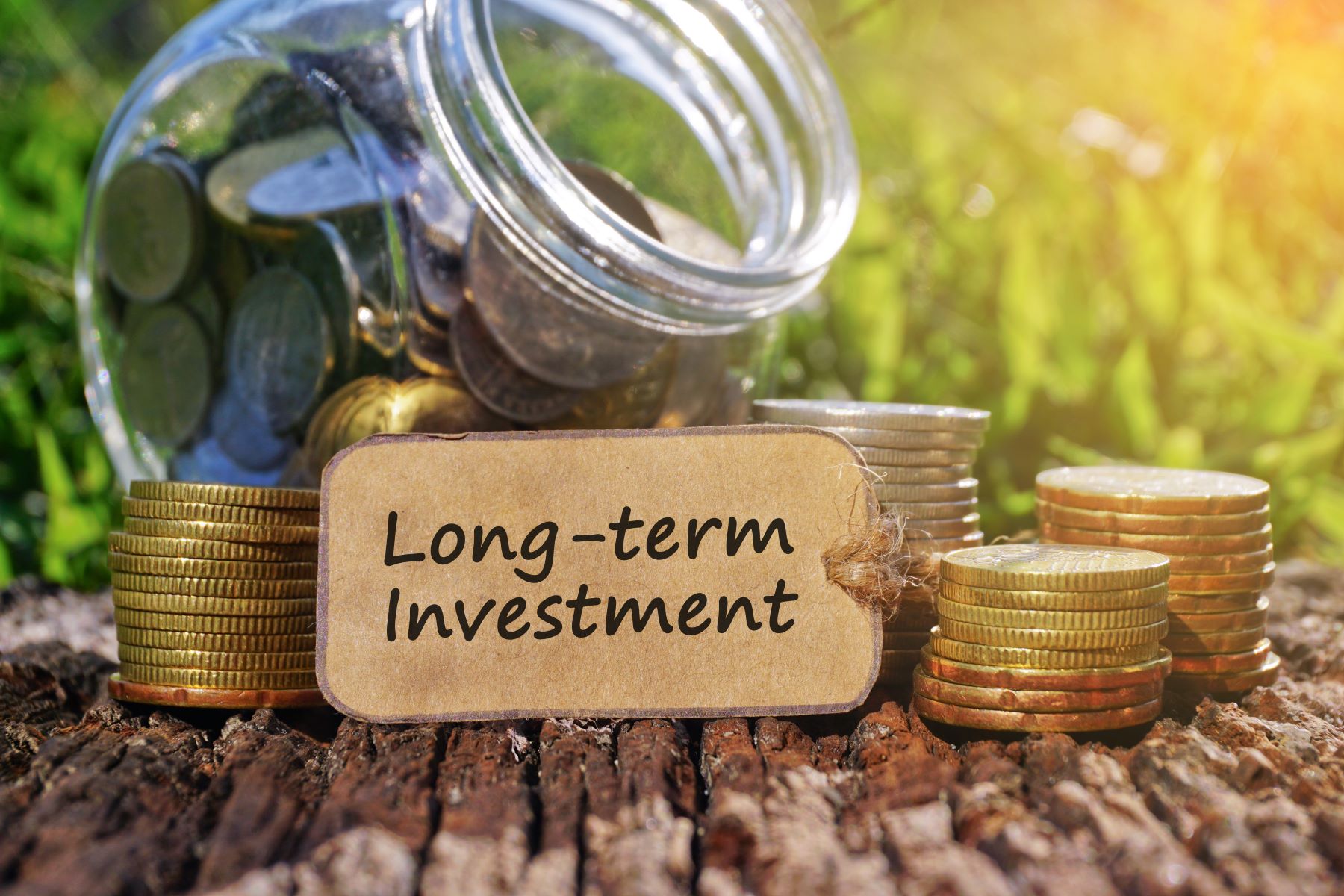Home>Finance>How Much Does A Voluntary Repossession Affect Your Credit?


Finance
How Much Does A Voluntary Repossession Affect Your Credit?
Published: January 11, 2024
Learn how a voluntary repossession can impact your credit score and financial situation. Find out the consequences of this finance-related decision.
(Many of the links in this article redirect to a specific reviewed product. Your purchase of these products through affiliate links helps to generate commission for LiveWell, at no extra cost. Learn more)
Table of Contents
- Introduction
- What is Voluntary Repossession?
- How Does Voluntary Repossession Impact Credit Scores?
- Factors Affecting the Impact of Voluntary Repossession on Credit
- Understanding the Credit Score Drop
- Rebuilding Credit After Voluntary Repossession
- Alternatives to Voluntary Repossession for Credit Protection
- Conclusion
Introduction
When facing financial hardship, individuals often find themselves overwhelmed by the burden of debt. In certain situations, such as when struggling to make car payments, voluntarily surrendering the vehicle may appear as a viable option. This decision, known as voluntary repossession, allows borrowers to return the vehicle to the lender, absolving themselves of the debt.
However, while it may provide temporary relief, it is important to understand the long-term consequences of voluntary repossession, particularly its impact on credit scores. A credit score is a crucial factor used by lenders to assess an individual’s creditworthiness and determine their ability to repay loans.
Voluntary repossession, like any negative event on a credit report, can have a significant impact on credit scores. But how much does it really affect your credit? In this article, we will explore the consequences of voluntary repossession on credit scores, factors that can amplify or mitigate its impact, and strategies for rebuilding credit after experiencing this financial setback.
It is important to note that the information provided in this article is general in nature and may not apply to specific financial situations. It is always recommended to consult with a financial professional or credit counselor for personalized advice.
What is Voluntary Repossession?
Voluntary repossession is a decision made by borrowers to return a financed asset, such as a car, boat, or recreational vehicle, back to the lender. It is an alternative option to involuntary repossession, where the lender recovers the asset due to non-payment or default on the loan.
When borrowers find themselves unable to continue making loan payments, voluntarily surrendering the asset may seem like the best course of action to avoid further financial strain. By proactively returning the asset to the lender, borrowers hope to alleviate the burden of monthly payments and potentially avoid additional fees associated with involuntary repossession.
The voluntary repossession process involves contacting the lender to express the intention to surrender the asset. The lender will then arrange a time and place for the borrower to return the asset. Once the asset is returned, it will typically be sold at auction by the lender in order to recoup some of the outstanding loan balance.
It is crucial to note that voluntary repossession does not absolve borrowers from their financial obligations entirely. In many cases, borrowers may still be required to pay the remaining loan balance after the asset is sold if it does not cover the entire debt. This is known as a deficiency balance, and it can continue to have negative financial ramifications.
Voluntary repossession should not be taken lightly, as it can have long-term implications for an individual’s creditworthiness. The borrower’s credit report will reflect the voluntary repossession, potentially resulting in a drop in their credit scores and making it more challenging to secure future loans or credit.
How Does Voluntary Repossession Impact Credit Scores?
Voluntary repossession can have a significant impact on credit scores. When borrowers surrender an asset voluntarily, it is seen as a negative event by lenders and is reported as such on the borrower’s credit report. This can lead to a drop in credit scores, making it harder for borrowers to obtain favorable terms on future loans or credit.
The exact impact of voluntary repossession on credit scores will depend on a variety of factors, including the borrower’s overall credit history and the severity of the delinquency leading up to the repossession. Generally, the higher the credit score before repossession, the more significant the drop will be.
A voluntary repossession can remain on a borrower’s credit report for seven years, which can significantly impact their borrowing ability during that time. Lenders view individuals who have experienced a repossession as higher risk borrowers, so they may be more inclined to charge higher interest rates or deny credit altogether.
It is important to note that the impact of voluntary repossession is not limited to credit scores alone. Other areas of a borrower’s financial life can also be affected, such as insurance premiums, rental applications, and even job applications that require a credit check.
Therefore, it is crucial to carefully consider the long-term consequences before opting for voluntary repossession. Exploring alternative options with the lender, such as loan modifications or refinancing, may be worth considering to mitigate the negative impact on credit and overall financial health.
Factors Affecting the Impact of Voluntary Repossession on Credit
While voluntary repossession can have a negative impact on credit scores, the severity of the impact can vary based on several factors:
- Previous Credit History: Borrowers with a strong credit history prior to the repossession may experience a greater drop in credit scores compared to those with a less established credit history.
- Number of Delinquent Payments: The number of missed or late payments leading up to the repossession can influence the impact on credit scores. The more delinquent payments, the greater the negative effect.
- Loan Balance: The outstanding balance on the loan at the time of repossession can also impact credit scores. Higher loan balances can result in a more significant drop in credit scores.
- Length of Time Since Repossession: The longer it has been since the repossession occurred, the less impact it will have on credit scores. As time passes, the negative effect gradually diminishes.
- Other Negative Items on Credit Report: If the borrower has other negative items on their credit report, such as bankruptcy or foreclosure, the impact of the repossession may be less pronounced.
- Improvements in Credit Behavior: Taking steps to rebuild credit and demonstrate responsible financial behavior after the repossession can help mitigate the impact over time.
It is important to note that these factors are not the only ones influencing the impact of voluntary repossession on credit scores. Each individual’s situation is unique, and the impact can vary. Additionally, the credit scoring models used by lenders may weigh these factors differently, resulting in varying outcomes.
Regardless of the specific circumstances, it is crucial to understand that voluntary repossession will have some negative impact on credit scores. Exploring alternatives or working with a reputable credit counselor to establish a plan to address the financial difficulties can help minimize the long-term repercussions on creditworthiness.
Understanding the Credit Score Drop
One of the most significant consequences of voluntary repossession is the drop in credit scores. Understanding how this drop occurs can help borrowers better navigate the impact and make informed decisions moving forward.
When a voluntary repossession is reported to the credit bureaus, it is recorded as a negative event on the borrower’s credit report. This negative event can result in a decrease in credit scores. The exact amount of the drop will depend on various factors, such as the borrower’s previous credit history and the severity of the delinquency leading up to the repossession.
The credit scoring models used by lenders consider several key factors when calculating credit scores. These factors include payment history, credit utilization, length of credit history, credit mix, and new credit inquiries. A voluntary repossession can have a significant impact on the payment history and credit utilization factors, which are crucial components of credit scores.
Payment history, representing around 35% of the credit score calculation, is negatively affected by the missed or late payments leading up to the repossession. As the repossession is a result of the borrower’s inability to meet their financial obligations, it signals a higher risk of default to future lenders.
Credit utilization, accounting for around 30% of the credit score calculation, is impacted when the asset is returned and the outstanding loan balance remains. This increases the borrower’s credit utilization ratio, which is the percentage of available credit being utilized. Higher credit utilization ratios can lower credit scores, as it suggests an increased reliance on credit and potentially struggling to manage debts.
It is important to note that while the drop in credit scores from a voluntary repossession can be significant, it is not permanent. With responsible financial behavior, such as timely bill payments and low credit utilization, borrowers can gradually rebuild their credit over time.
Monitoring credit reports regularly is key to staying informed about any changes or updates to credit scores. This allows borrowers to identify areas of improvement and track progress as they work towards rebuilding their credit after a voluntary repossession.
Rebuilding Credit After Voluntary Repossession
Recovering from the impact of a voluntary repossession and rebuilding credit may take time and effort, but it is possible with careful financial management. Here are some strategies to consider:
- Prioritize Timely Payments: Paying bills and debts on time is crucial to rebuilding credit. Focus on making timely payments for all current and future financial obligations, including credit cards, utilities, and loans.
- Reduce Debt and Improve Credit Utilization: Paying down existing debts can help improve credit utilization and demonstrate responsible financial behavior. Consider creating a budget to allocate funds towards reducing outstanding balances.
- Consider Secured Credit Cards: Secured credit cards can be helpful tools for rebuilding credit. By making small purchases and consistently paying off the balance, borrowers can showcase responsible credit management over time.
- Apply for a Small Credit-Building Loan: Some lenders offer credit-building loans specifically designed to assist individuals in rebuilding credit. These loans may have lower approval requirements, providing an opportunity to establish a positive credit history.
- Monitor Credit Reports: Regularly monitor credit reports to ensure accuracy and identify any potential errors or issues. Reporting inaccuracies should be addressed promptly to maintain an accurate credit profile.
- Consider Credit Counseling: Seeking guidance from a reputable credit counseling agency can provide valuable insights and personalized advice on rebuilding credit after a voluntary repossession. These professionals can help create a plan tailored to your financial situation.
- Practice Patience: Rebuilding credit takes time, so it’s essential to be patient and persistent. Consistent responsible financial behavior and adherence to good credit habits will eventually contribute to an improved credit profile.
It’s important to remember that each individual’s credit rebuilding journey will be unique. Results may vary based on individual circumstances, previous credit history, and the severity of the voluntary repossession. Being proactive, staying committed to responsible financial practices, and seeking professional guidance when necessary can greatly assist in rebuilding credit after a voluntary repossession.
Alternatives to Voluntary Repossession for Credit Protection
While voluntary repossession may seem like a viable option for individuals facing financial difficulties, there are alternative strategies to consider that can help protect credit scores. Here are some alternatives to voluntary repossession:
- Loan Modification: Contacting the lender to explore the possibility of a loan modification can be worthwhile. Loan modifications involve renegotiating the terms of the loan, such as the interest rate or monthly payments, to make them more manageable.
- Refinancing: For borrowers who still want to keep the asset, refinancing the loan can be an option. It involves taking out a new loan with better terms to replace the existing loan. This can lower monthly payments and provide a fresh start.
- Debt Negotiation: Communicating with the lender and negotiating a settlement or repayment plan may be possible. Debt negotiation can help reduce the outstanding balance or establish a more affordable payment structure.
- Credit Counseling: Seeking assistance from a reputable credit counseling agency can provide valuable guidance and support. Credit counselors can help create a personalized plan to manage debt, improve financial habits, and protect credit scores.
- Sell the Asset: If it is financially feasible, selling the asset to repay the loan can help avoid repossession altogether. This allows borrowers to take control of the situation and potentially minimize the impact on credit.
- Temporary Payment Deferral: Some lenders may be willing to offer a temporary payment deferral or forbearance plan. This allows borrowers to pause payments temporarily while they work to stabilize their financial situation. However, it is important to fully understand the terms of any deferral or forbearance agreement before accepting.
Each alternative has its own set of pros and cons, and the best course of action will depend on individual circumstances. It is crucial to carefully weigh the potential impact on credit, the feasibility of the alternative options, and the long-term financial implications before making a decision.
Consulting with a financial professional or credit counselor can provide valuable insights and advice tailored to your specific situation. They can help assess the alternatives, understand the potential consequences, and guide you towards the most suitable option for protecting credit and addressing financial challenges.
Conclusion
Voluntary repossession can be a tempting solution for individuals facing financial hardship and struggling to make loan payments. However, it is crucial to understand the impact it can have on credit scores and overall financial health. A drop in credit scores resulting from voluntary repossession can make it harder to secure future loans, obtain favorable interest rates, and even affect other areas of life, such as insurance premiums and rental applications.
While the impact of voluntary repossession on credit scores can be significant, it is not permanent. By implementing responsible financial habits, such as making timely payments, reducing debt, and demonstrating responsible credit utilization, borrowers can gradually rebuild their credit over time.
It’s important to explore alternatives to voluntary repossession, such as loan modifications, refinancing, debt negotiation, or seeking credit counseling. These options can help protect credit scores, address financial difficulties, and provide a path towards financial recovery.
Remember, each individual’s situation is unique, and the best course of action may vary. Consulting with a financial professional or credit counselor can provide personalized guidance and support throughout the process.
Ultimately, rebuilding credit after a voluntary repossession requires patience, commitment, and proactive management of personal finances. By taking the necessary steps to rebuild credit, individuals can regain their financial stability and work towards a brighter financial future.














